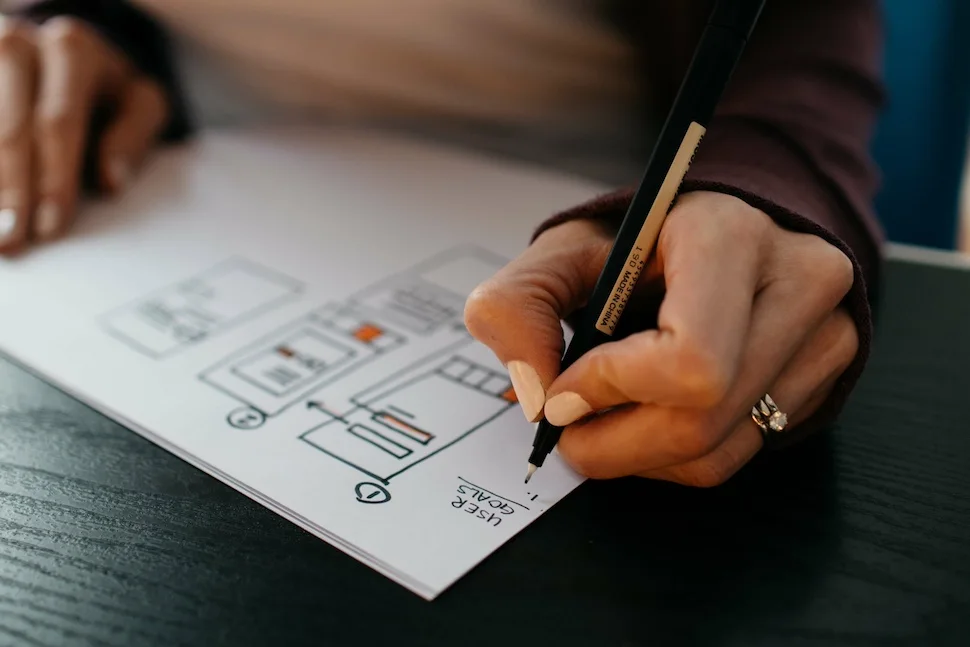As international networks bring our world ever closer together, increasing numbers of companies are looking to expand their horizons and gain a foothold on the global stage. As a direct result of this trend, the need for translations that are delivered quickly, accurately, and efficiently is also increasing, as companies seek to optimize how they serve their target markets. But how do translation projects actually work and what processes are involved? Let us reveal all…
The Phases of a Translation Project
Contrary to most expectations, a translation project does not exclusively involve hiring the translators and delivering the translation. In reality, a translation project is somewhat more complex.
Each translation project goes through different stages before the finished translation can be delivered to the client. In general, a translation project can be roughly divided into four phases:
Let's briefly look at the different steps of a translation project.
1. The Preparation Phase
Proper preparation is the key to ensuring a high-quality translation. In the preparation phase, the project manager receives your order and checks whether all the necessary information is available to start the translation or to provide you with a quote.
The core information of any translation project includes:
- Text(s) to be translated
- Desired target languages and language variants
- Reference material and additional information
- Additional services such as SEO, DTP, in-country review, etc.
- Delivery date
Texts
The starting point of every translation project is the text to be translated. While documents in editable formats are preferred – such as Word, IDML, and XLIFF – other formats such as PDFs do not usually present a problem provided they have been well-prepared. We check the files to see whether our translation software can read and import the entire text or whether there are any non-editable elements, such as text contained in graphics. We then assess whether there are any sections that still need to be prepared before the translation can begin. Only through this precise analysis of the files can we guarantee that all the text parts you want will be extracted from the document and translated.
Desired target languages and language variants
In addition to the question of the languages into which the texts should be translated, the language variant also plays an important role. If your target audience is in Brazil, for example, then we would recommend that you have your texts translated into Brazilian Portuguese instead of the European version. Selecting the language and language variant that is most suitable for the target market is very important for you to effectively reach your target audience.
Reference material and additional information
In addition to the source text, is there any important reference material or special information that our translators should be aware of when creating the target text? Would you like to address your target audience in a formal or informal style? If you are working with us for the first time, we will also ask whether there are any termbases or glossaries that the translators should adhere to. This is particularly relevant in order to be able to translate the texts consistently with respect to any existing translations and also in compliance with your company terminology.
Additional services
We are also happy to offer services that go beyond mere translation, such as an in-country review of the translation using our tool Globalreview. Globalreview is a platform in which your internal reviewers can look at the translation, make changes where necessary, classify each change with different error categories, and finally evaluate the overall quality of the translation.
In addition to the review, we can provide DTP services for both file preparation and post-processing.
For translations of websites and online marketing content, Eurocom also offers SEO (search engine optimization) and SEA (search engine advertising) as a service. After all, we want your translated texts to also be found in the target countries.
Inclusive language is also an area of growing importance in many cultures. If you want your target texts to also be written with certain inclusivity and equality considerations in mind, we are happy to check whether this is possible in the respective target languages.
Additional services such as the in-country review or global SEO can all have a major impact on how well the text is received by readers – or whether it is even found at all.
Delivery date
When is the translation required? Do you have a tight deadline or is the delivery date flexible?
In addition to the organizational tasks, creating the quote also forms part of the preparation phase. Once all the details have been clarified, your contact person in the project management team will prepare a quote for you. Prices vary depending on the languages involved and the nature of the text. As soon as you have confirmed the offer, we will start the translation. Which takes us to the second phase of the translation project: the translation phase.
2. The Translation Phase
We only work with translators who translate into their native language and live in a country where this language is spoken. At Eurocom, we attach great importance to working with regular teams who are familiar with your wishes and requirements.
As an ISO 17100-certified company, we also make sure that the translators work according to the four-eyes principle. In other words, each team consists of two people: a translator and a reviser.
While our translators translate the texts, our project management team keeps an eye on the progress of the project and acts as an interface between you and the translators. This is particularly important should any queries arise during the translation. Translators who ask queries to clarify ambiguities in the content are not only helping to improve the quality of the target text, but also the source text as well. If we are not able to answer the translator's questions ourselves, we will forward them to you or your respective experts.
The translators then incorporate the answers into the translation and deliver the finished target text to us. This automatically triggers the next phase in the translation process: the quality assurance phase.
3. The Checking Phase: Quality Assurance
Through our ISO 17100 certification, quality control is also an important part of any translation project. This means that the completed translations are checked for errors using a range of different tools. The project manager will check the texts for several types of error, including:
- Inconsistencies
- Formatting
- Numbers
- Punctuation and spelling
- Terminology
- Correct incorporation of query answers
If any potential errors are detected, they will consult the translator to find out if anything needs to be corrected. After completing this important step, we export the final translation from our translation software and back into your preferred target format, and import the translations into your dedicated translation memory. In a final step, our project managers make sure that the layout in the target file is correct and that all the content has been exported correctly.
4. The Closing Phase
We are now ready to deliver your translation, after which the project is invoiced. For us, however, the project is only considered truly complete once you are fully satisfied with the results. Our project managers are therefore always at your disposal for your feedback or questions about the translation. After all, we all share the same goal: to ensure that you enjoy a prominent position in your target markets.
Conclusion
As we can see, there is a complex process behind every translation project that you would not expect at first glance. With our project managers on hand to advise and guide you throughout the entire process, you and your translation projects are always in the best possible hands at Eurocom.
And finally, a tip from us to you: a well-prepared project creates the best possible conditions for our translators. Relevant and helpful reference material as well as clear instructions lay the foundations for a smooth process and ultimately a high-quality translation.
Are you already planning your next translation project? We would be happy to help! Simply get in touch with your request.
Was Sie noch interessieren könnte:
- Editing, Proofreading, Revision. What's The Difference?
- What's the point of translation when everyone speaks English anyway?
- Managing (Translation) Risk Safely



